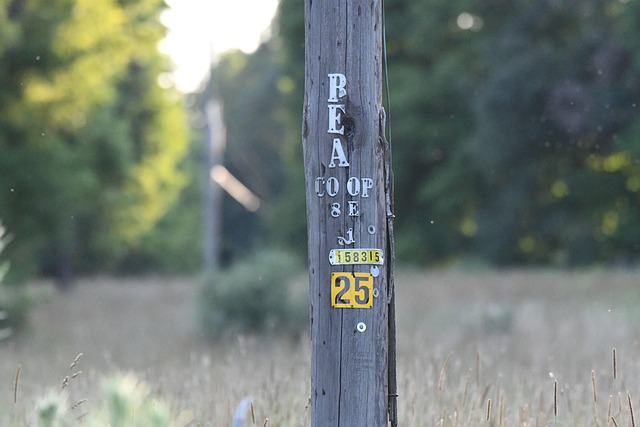Stricter laws in Denver, Colorado, protect minors from abuse and encourage reporting while ensuring informer anonymity. The city's legal system prioritizes children's well-being with specialized units. Crowdsourcing offers a promising approach for child abuse law firms in Denver CO to prevent child abuse by enhancing early detection and community involvement, but it requires careful navigation of legal risks and guidelines for effectiveness. These child abuse law firms can guide volunteers on best practices, liability risks, and privacy concerns, empowering communities while ensuring safety and accuracy in prevention efforts.
“In an effort to combat child abuse, Denver has explored innovative solutions, including crowdsourcing as a preventative measure. This article delves into the legal landscape surrounding this approach, examining both risks and benefits for communities and volunteer contributors. With a focus on Denver’s child abuse laws, we explore how crowdsourcing initiatives can empower community involvement while navigating potential legal pitfalls. By understanding these factors, residents and law firms in Denver CO can contribute to a safer environment for children.”
Understanding Denver's Child Abuse Laws

In Denver, Colorado, child abuse is taken extremely seriously, with strict laws in place to protect minors. The state has comprehensive legislation that defines child abuse and neglect, outlining various forms of mistreatment, including physical, emotional, and sexual abuse, as well as failure to provide necessary care. These laws not only mandate reporting suspected cases but also protect individuals who come forward with information, ensuring their anonymity and safety. Understanding these legal frameworks is crucial for anyone interested in contributing to child abuse prevention efforts in Denver, especially when considering the involvement of a child abuse law firm in CO.
Denver’s legal system prioritizes the well-being of children, providing resources for victims and enforcing penalties against perpetrators. The city’s proactive approach includes specialized units within law enforcement dedicated to investigating child abuse cases, along with support services for survivors. This robust legal infrastructure serves as a cornerstone for crowdsourcing initiatives aimed at preventing child abuse, ensuring that efforts are aligned with existing laws and directed towards effective strategies.
Crowdsourcing: A Potential Solution or Risk?

Crowdsourcing, the practice of leveraging collective intelligence and resources from a group of individuals, has emerged as a potential solution for various social issues, including child abuse prevention. In Denver, CO, where numerous reputable child abuse law firms operate, exploring innovative approaches to combat this heinous crime is paramount. By harnessing the power of crowdsourcing, community members can actively contribute to identifying potential risks and reporting suspected cases. This method could enhance early intervention and support for victims.
However, implementing such a strategy also presents legal risks. Privacy concerns, data security, and accurate verification are critical challenges. Misinformation or false reports can have severe consequences, potentially harming individuals’ reputations. Therefore, any crowdsourcing initiative must adhere to strict guidelines, ensuring transparency and accountability while harnessing the collective wisdom of Denver’s residents to combat child abuse effectively.
Legal Implications for Volunteer Contributions

Volunteering for crowdsourcing initiatives aimed at preventing child abuse in Denver, or anywhere, comes with its legal considerations. While well-meaning individuals and organizations may contribute their time and resources, it’s crucial to understand potential liability risks. In many jurisdictions, including Colorado, there are strict laws protecting volunteers from certain types of lawsuits related to their service. However, these protections vary, and what constitutes acceptable behavior can be ambiguous. For instance, if a volunteer shares information that later proves inaccurate or causes harm, they might face legal repercussions. Child abuse prevention efforts often involve sensitive data, so it’s essential for volunteers to be educated on confidentiality agreements and privacy laws, such as the Children’s Online Privacy Protection Act (COPPA).
Denver-based child abuse law firms can play a vital role in guiding these crowdsourcing initiatives. They can provide legal advice on best practices for volunteer contributions, ensuring compliance with local and state regulations. By involving legal experts, organizations can establish clear guidelines, protect volunteers from unexpected liabilities, and maximize the effectiveness of their prevention efforts while minimizing risks.
Empowering Communities: Benefits and Challenges

Empowering communities through crowdsourcing initiatives in child abuse prevention holds immense potential, especially in cities like Denver, where dedicated child abuse law firms play a vital role. This collaborative approach allows citizens to actively contribute to a safer environment by reporting suspected cases and sharing relevant information. The benefits are clear: increased vigilance, quicker response times, and a more comprehensive understanding of the issue at hand.
However, challenges emerge when navigating the legal complexities surrounding child abuse cases. Protecting the identities of whistleblowers while ensuring the accuracy of crowdsourced data is crucial to maintaining public trust. Legal risks associated with false accusations and privacy concerns require careful consideration. Child abuse law firms in Denver CO can facilitate this process by providing guidance on best practices, protecting community members from legal repercussions, and offering support to ensure a balanced and effective crowdsourcing strategy.






